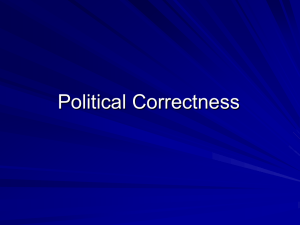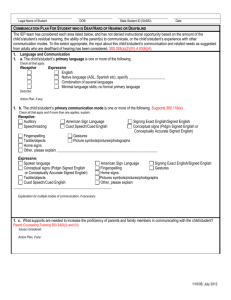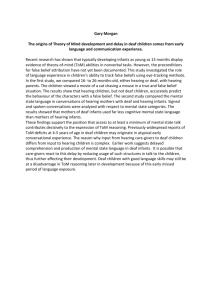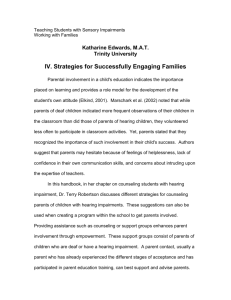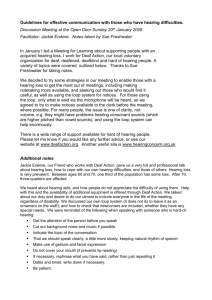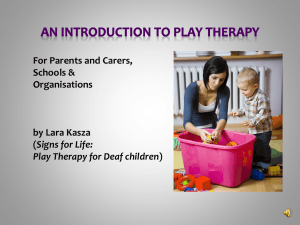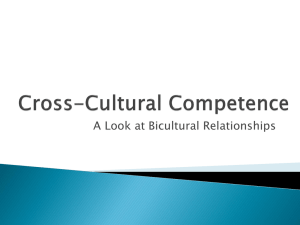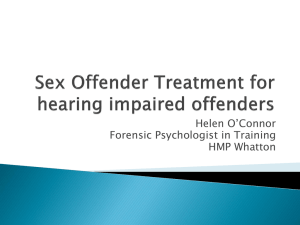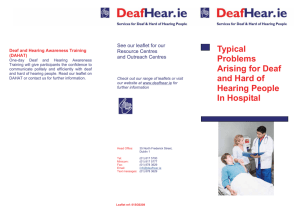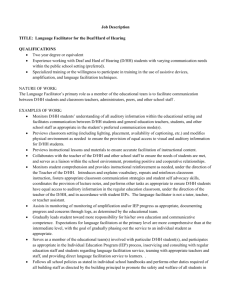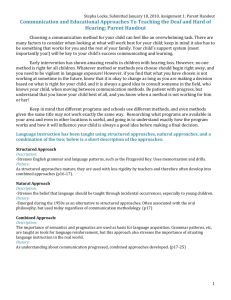Investigation of Screening Tools for Amnestic Mild Cognitive
advertisement
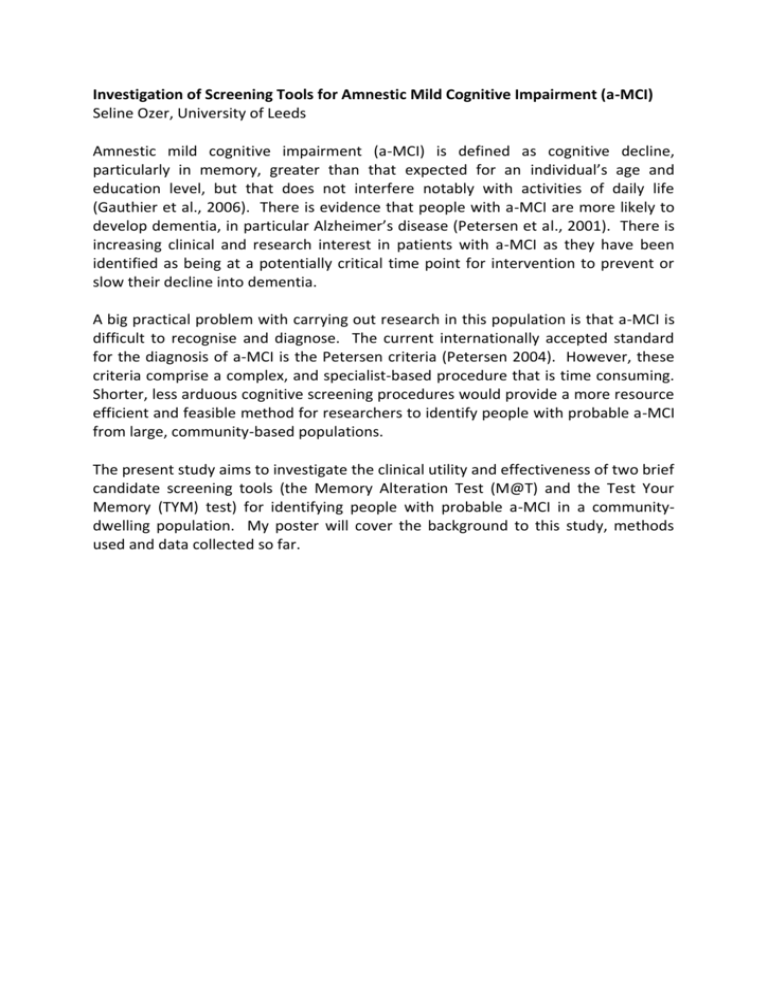
Investigation of Screening Tools for Amnestic Mild Cognitive Impairment (a-MCI) Seline Ozer, University of Leeds Amnestic mild cognitive impairment (a-MCI) is defined as cognitive decline, particularly in memory, greater than that expected for an individual’s age and education level, but that does not interfere notably with activities of daily life (Gauthier et al., 2006). There is evidence that people with a-MCI are more likely to develop dementia, in particular Alzheimer’s disease (Petersen et al., 2001). There is increasing clinical and research interest in patients with a-MCI as they have been identified as being at a potentially critical time point for intervention to prevent or slow their decline into dementia. A big practical problem with carrying out research in this population is that a-MCI is difficult to recognise and diagnose. The current internationally accepted standard for the diagnosis of a-MCI is the Petersen criteria (Petersen 2004). However, these criteria comprise a complex, and specialist-based procedure that is time consuming. Shorter, less arduous cognitive screening procedures would provide a more resource efficient and feasible method for researchers to identify people with probable a-MCI from large, community-based populations. The present study aims to investigate the clinical utility and effectiveness of two brief candidate screening tools (the Memory Alteration Test (M@T) and the Test Your Memory (TYM) test) for identifying people with probable a-MCI in a communitydwelling population. My poster will cover the background to this study, methods used and data collected so far. Lie or Mistake? Dear and Hearing Children’s Understanding of Beliefs and Intentions Ciara Kelly, University of Sheffield Understanding the beliefs and intentions behind what people say is critical to understanding. For example, determining if a false statement is a lie or a mistake depends on our assessment of the speaker’s awareness that the statement is false. Deaf children from hearing families are significantly delayed in their ability to pass false belief tasks compared to hearing peers and deaf children from deaf families (Meristo et at., 2012; Woolfe et al, 2002). We investigated children’s ability to identify false statements as either a lie of mistake. Children were presented with a scenario where one protagonist had seen that some food was unfit to eat whereas another had not. Both uttered a false statement to a third that the food was unacceptable to eat. All children passed control questions, demonstrating that they had understood the scenario and remembered who had seen what. However, hearing children and deaf of deaf children significantly outperformed the deaf of hearing group in their ability to correctly identify the lie and mistake. Since deaf of hearing children demonstrate delay in language acquisition, it is often argued that access to language plays a key role in social-cognitive development. The deaf of hearing children were therefore matched to hearing children with the same language age, revealing no significant difference in ability to detect lies and mistakes. Findings suggest that access to language is key to explaining why deaf children from hearing families have difficulty inferring communicative intentions based on reasoning about the mental states that underpin speech acts.
